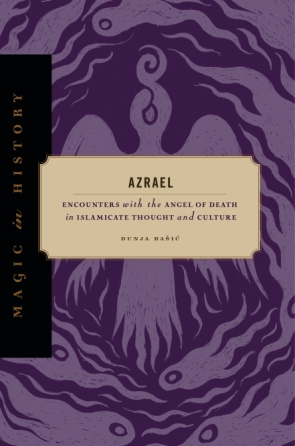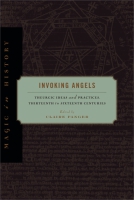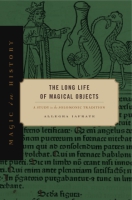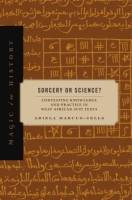
Azrael
Encounters with the Angel of Death in Islamicate Thought and Culture
Dunja Rašić
Azrael
Encounters with the Angel of Death in Islamicate Thought and Culture
Dunja Rašić
“With remarkable precision, Rašić’s Azrael situates death not merely as an event but as a form of knowledge—one that has shaped Islamic intellectual history. The exploration of the angel of death, especially, marks a pioneering contribution, as this is the first to treat this figure’s legacy in Islamic writings and, to a lesser degree, art. As with her previous books, Rašić’s monograph breathes new life into Ibn ʿArabī studies.”
- Description
- Reviews
- Bio
- Subjects
With particular attention to the writings of Muḥyī al-Dīn Ibn ʿArabī (d. 1240), Dunja Rašić explores the time-honored rites and practices of defying death in Muslim cultures and societies. Ibn ʿArabī, one of the most influential Sufi scholars, poets, and philosophers, claimed among his many spiritual accomplishments the subjugation of Azrael himself. His pursuit of mastery over death was rooted in his extensive knowledge of angelology, prophetic traditions, and thanatology, and his works preserve striking accounts of his encounters with the angel of death. Drawing on these texts, Rašić delivers an in-depth study of Islamic angelology that challenges our understanding of the status and functions of angels, human (dis)obedience to God, and (im)mortality in Islam and Akbarian Sufism.
An original and pioneering work, Azrael contributes new insights into how Muslims have imagined angels, death, and immortality. It will appeal to scholars of Sufism, Islamic studies, comparative religion, and medieval philosophy, as well as general readers interested in spirituality, esotericism, or the teachings of Ibn ʿArabī.
“With remarkable precision, Rašić’s Azrael situates death not merely as an event but as a form of knowledge—one that has shaped Islamic intellectual history. The exploration of the angel of death, especially, marks a pioneering contribution, as this is the first to treat this figure’s legacy in Islamic writings and, to a lesser degree, art. As with her previous books, Rašić’s monograph breathes new life into Ibn ʿArabī studies.”
Dunja Rašić is a specialist in philosophical Sufism and the school of Ibn ʿArabī at Tampere University and the Muhyiddin Ibn Arabi Society PRISM Project. She is the author of The Written World of God: The Cosmic Script and the Art of Ibn ʿArabi, Bedeviled: Jinn Doppelgangers in Islam and Akbarian Sufism, and The Nightfolk: Ibn ʿ Arabi Behind the Veil of Night.
Also of Interest
Mailing List
Subscribe to our mailing list and be notified about new titles, journals and catalogs.






